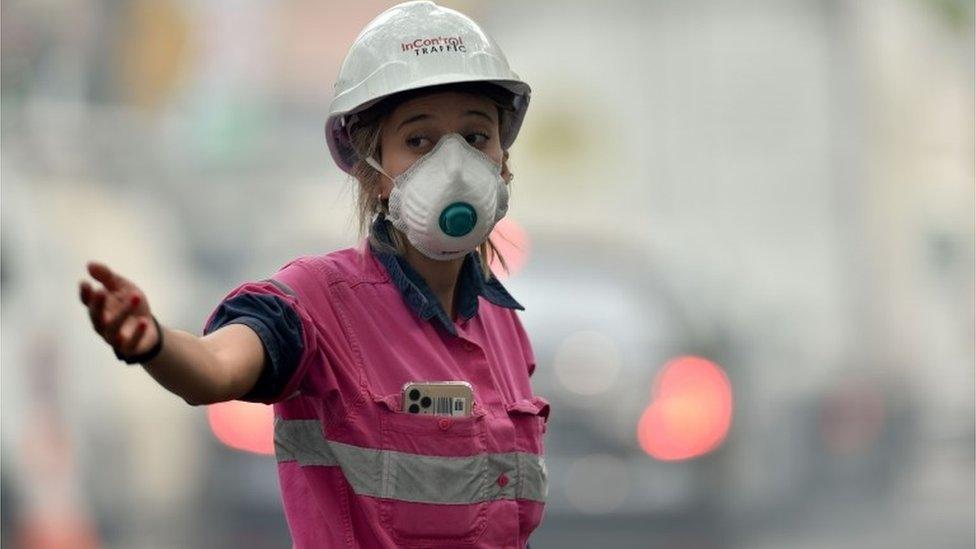Australia climate change: Thousands rally in Sydney amid bushfires
- Published
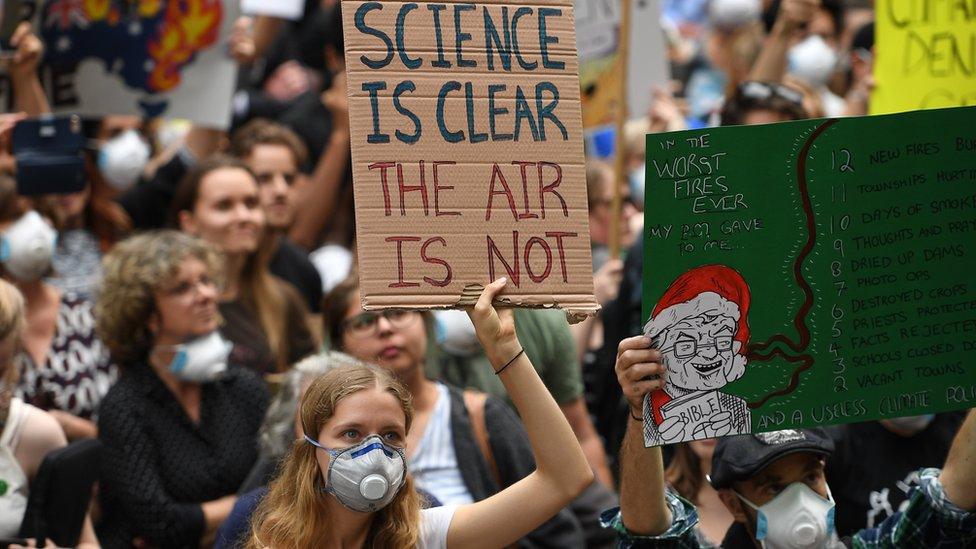
Organisers say some 20,000 people took part in the "climate emergency rally"
Thousands of protesters have taken to the streets of Sydney to demand urgent action on climate change amid an extreme bushfire season that has brought hazardous smoke to the city.
It came a day after a thick haze caused chaos in the harbour city, setting off smoke alarms and marring visibility.
Protesters, many wearing face masks, accused the government of inaction.
But Australia's government has defended its policies and argued that climate change is not solely to blame.
"Certainly climate change is a factor, there is no question, but also it is important to note that most of these fires have been caused by 'Little Lucifers'," Deputy Prime Minister Michael McCormack told ABC, referring to arsonists.
What happened at the protest?
Organisers estimated that some 20,000 people joined Wednesday's protest march. They accused successive governments of failing to address the "approaching climate emergency".
"Now the result is here: unprecedented drought, bushfires, and now a massive health crisis, with millions choking, with no escape, and severe consequences for people's immediate and long term health," they wrote on a Facebook page for the event.
Protesters held up signs and chanted as they gathered outside Sydney's Town Hall.
"They [the government] are to blame for our largest city being poisoned and rather than taking meaningful action, they are fast-tracking new coal mines," Chloe Rafferty, an organiser for the Uni Students for Climate Change group holding the march, told Reuters news agency.
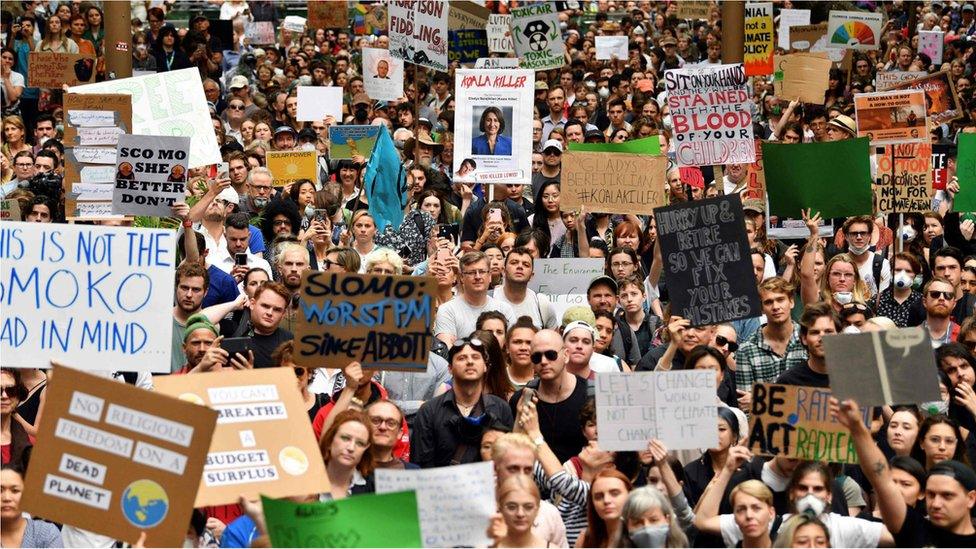
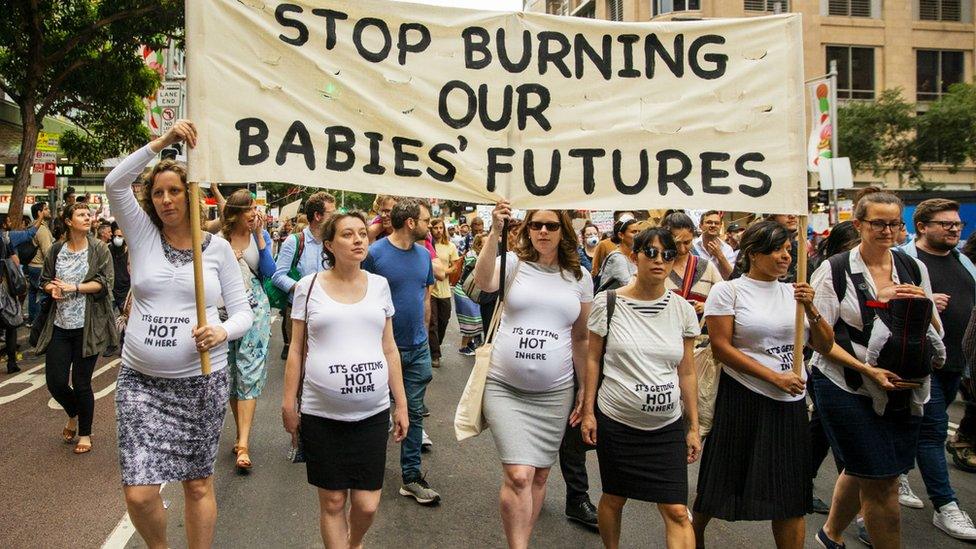
"We are here because we care about the future of our children and their children's children. We are going to send a message to our leaders in our country: that we are now going to stand up to say we are here and we have had enough," another protester said.
What is the background?
Bushfires have been raging for weeks in Australia, killing six people, destroying more than 700 homes and burning millions of acres of land.
Sydney bushfire smog 'like being a heavy smoker'
The blazes have brought "hazardous" air quality levels to Sydney. The haze on Tuesday was described by many people as the thickest to blanket the city amid this year's fire crisis.
Some residents reported breathing problems and said they were "choking" on the smoke.
Sydney residents are also facing the city's toughest water restrictions in more than a decade amid a severe drought.
What is Australia doing about climate change?
Australia has one of the highest per capita greenhouse gas emissions rates in the world due largely to its reliance on coal-fired power plants.
In June, the government gave final approval for construction to begin on a controversial coal mine in the state of Queensland. Environmental campaigners said they feared it could pave the way for six other mines to be approved in the area.
Under the Paris climate agreement, Australia has pledged to cut emissions by 26% to 28% on 2005 levels by 2030.
But while Prime Minister Scott Morrison has reiterated the government's commitment to meeting this target, the United Nations last year warned that it was not on track to do so.
- Published11 November 2019
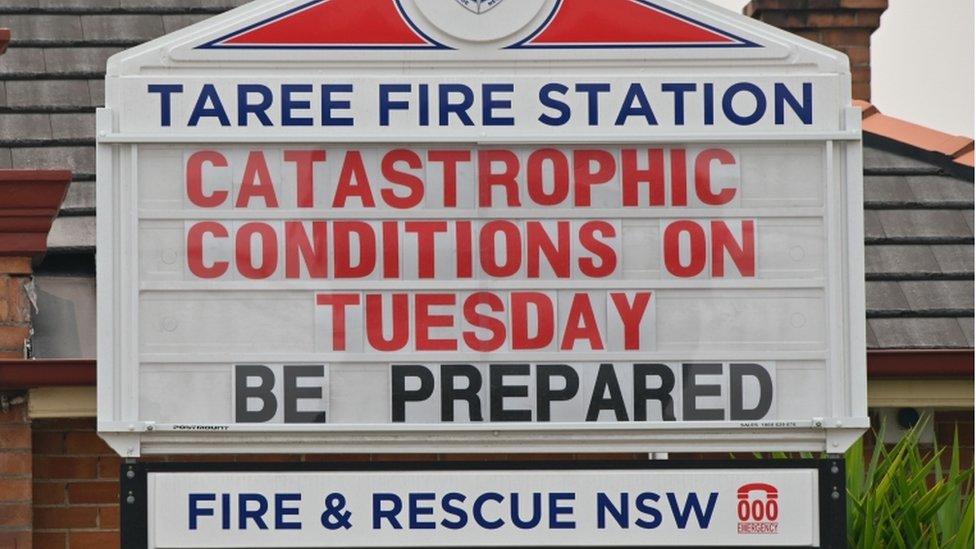
- Published7 December 2019
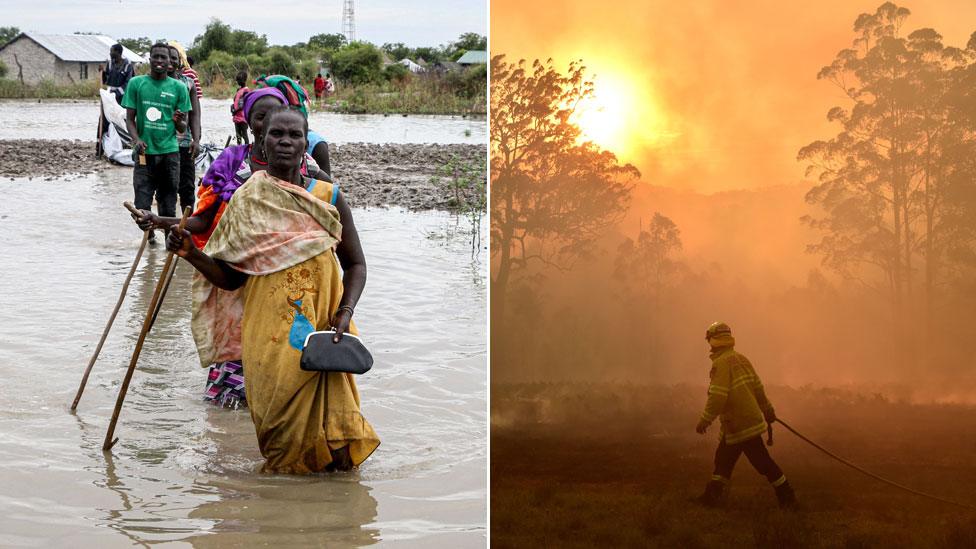
- Published17 January 2020

- Published10 December 2019
